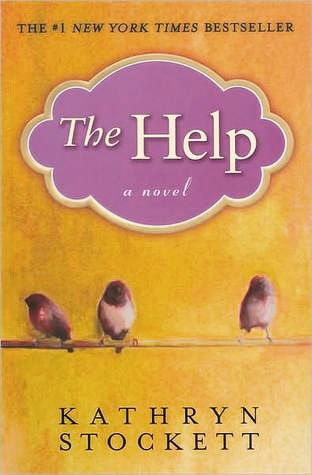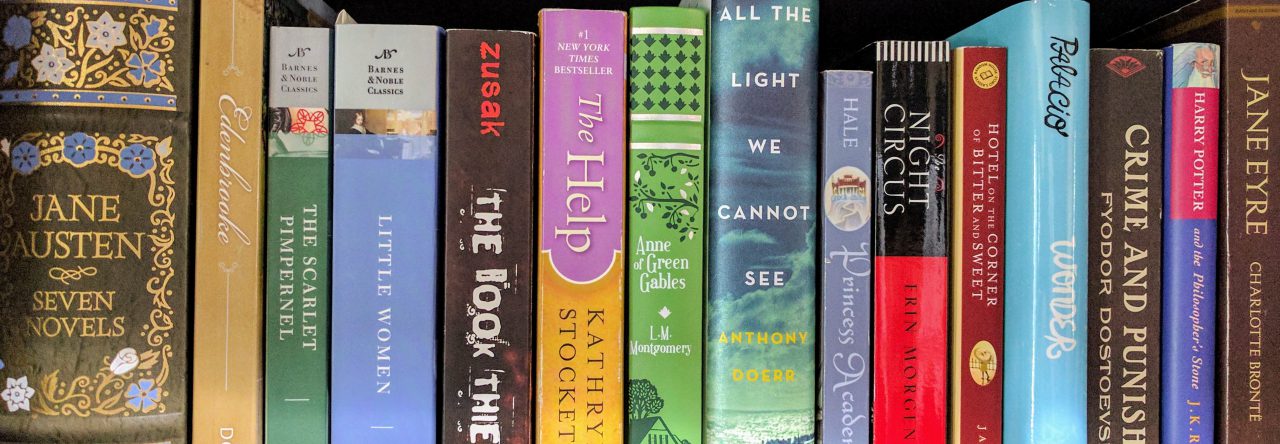Hi y’all!
And so the review catch up begins! This is my first of several reviews I need to post to finish up my 2018 reading. I am so excited and a bit intimidated to review The Help by Kathryn Stockett.
I can’t remember who first introduced me to this novel or even the first time I read it. I just know it’s been one of my self declared favorite novels for years. It had been several years since I read it so I decided 2018 would be the perfect time for a reread. And I was blown away again especially by its poignancy and power.
Initial Thoughts:
- I love this book from the first page. The story is engaging, the characters are beautifully developed (and seemingly different and similar to each other), and the climax is fantastic. This book does everything well.
- Surprisingly, I actually love the movie adaptation as well. I think the portrayals of the three protagonists are especially good. It’s fascinating to see everyone on a screen too–and a bit thought provoking as well.
- I read the author note at the end of my edition of the novel for (I’m pretty sure) the first time on this reread. Did you know Kathryn Stockett grew up in the South and was very close with her family’s black maid? I didn’t and I think it adds to the beauty of this story that she based at least a part of it on her own experiences.

The Help by Kathryn Stockett is the story of three women who come together to share their stories and change their futures. According to Goodreads: “Twenty-two-year-old Skeeter has just returned home after graduating from Ole Miss. She may have a degree, but it is 1962, Mississippi, and her mother will not be happy till Skeeter has a ring on her finger. Skeeter would normally find solace with her beloved maid Constantine, the woman who raised her, but Constantine has disappeared and no one will tell Skeeter where she has gone. Aibileen is a black maid, a wise, regal woman raising her seventeenth white child. Something has shifted inside her after the loss of her own son, who died while his bosses looked the other way. She is devoted to the little girl she looks after, though she knows both their hearts may be broken. Minny, Aibileen’s best friend, is short, fat, and perhaps the sassiest woman in Mississippi. She can cook like nobody’s business, but she can’t mind her tongue, so she’s lost yet another job. Minny finally finds a position working for someone too new to town to know her reputation. But her new boss has secrets of her own. Seemingly as different from one another as can be, these women will nonetheless come together for a clandestine project that will put them all at risk. And why? Because they are suffocating within the lines that define their town and their times. And sometimes lines are made to be crossed. In pitch-perfect voices, Kathryn Stockett creates three extraordinary women whose determination to start a movement of their own forever changes a town, and the way women — mothers, daughters, caregivers, friends — view one another. A deeply moving novel filled with poignancy, humor, and hope, The Help is a timeless and universal story about the lines we abide by, and the ones we don’t.”
It’s so hard for me to pick a favorite character in this book; all three protagonists are beautifully developed and endearing in different ways. I am impressed by how well Stockett writes from the perspective of three very different women of different backgrounds and ages. They are all beautifully developed characters that I came to love and admire in dramatically different ways. I love Skeeter’s determination to stand up for truth and her somewhat ignorant determination to love Constantine and Aibileen more than her own family. I love Aibileen’s gentle, fierce strength as she truly loves and raises white babies. Her relationship with Mae Mobley is beautiful and heart breaking. I love Minny’s spunk and quick wit. It’s a miracle that she hasn’t been in more trouble before the “terrible awful” but I love that she doesn’t back down from people who mistreat her (except for her husband for so long). I also really enjoyed Skeeter’s mother as she battles sickness and overcomes her own prejudices about what Skeeter must do to make her proud. I love her defense of Skeeter near the end to Hilly.
Even the characters that I didn’t like are so vividly described; Stockett has a gift for characterization. Hilly Holbrook makes my jaw drop several times throughout the book with her proud, offensive interactions with others. She’s a character that is easy to loath and wow, does she twist the truth in scarily clever ways. Mostly, I felt sorry for Elizabeth–the sterotypical girl who wants so desperately to fit in with the cool kids that she will sacrifice anything to get their attention. My heart aches for Mae Mobley and her desire to have a relationship with her distracted mother. Every character gets a vibrant sketch from Constantine in the flashbacks to Skeeter’s childhood memories to Mr Johnny in his first interaction with Minny and even Miss Walters at the Christmas Benefit. No matter how small their part, every character is described so well, I can see them standing in front of me. The characters are what takes a compelling story and makes it timeless.
I love the language in this book. As Kathleen Kelly says, “I get lost in the language.” The descriptions of the cotton on a newly harvested field or the decor in Aibileen’s small living room, even the way the chicken salad looks for bridge club. Everything is so intricate and so detailed. I loved every word. The details of each character’s life are so clear as well–I can picture each woman’s home and life. I can see the stark differences between Skeeter’s large family home on the cotton farm and Minny’s crowded house on the other side of town. But both are so beautifully created. Stockett’s writing style continued to pull me in and made me feel like I am really there experiencing 1960s Mississippi.
Perhaps what sets this book apart most of all is the story. This is a memorable and brave story to tell. In fact, I was surprised by how controversial this book could be. It doesn’t back down from intense issues like racism, the civil rights movement, and abuse. The story is so much more intense than I remember. It’s discussion of race, equality, and truth reminded me of To Kill a Mockingbird. Both are such beautiful narratives of life in a complex time in American history.
I love this book. I love what it teaches, what it describes, what it celebrates and what it reveals. This is a classic and a masterpiece.





Have you read The Help? What did you think?
What are your favorite American historical novels?

Pingback: 7 Books to Read if you love To Kill a Mockingbird – greenish bookshelf
I just read this book over Christmas and the New Year and loved it too. The three main characters are wonderfully developed, and the pace is so fast, even though such a lot of the story is to do with cleaning, cooking and childcare. It’s great when stereotypes can be turned on their heads, and I’d love to be on Aibileen’s prayer list. I’m just getting my thoughts together to review it on my blog in the next few weeks.
LikeLiked by 1 person
Thanks so much for your comment! I’m so glad you enjoyed it too, Paula! It really is a masterpiece of modern historical fiction. I’d love to read your review when you finish it. Send me the link 🙂
LikeLike
Pingback: January Wrap-Up & February TBR – greenish bookshelf
I really liked this book as well. I also really loved the movie and I don’t usually like film adaptations! It was obviously well done because everyone in our packed theater was clapping, hooting, and yelling out comments throughout the movie. We all really FELT it, you know? Glad you enjoyed the book!
Susan
http://www.blogginboutbooks.com
LikeLiked by 1 person
I agree on the adaptation! Really beautifully done. Sounds like your theater experience was so fun! That’s awesome. Thanks!
LikeLike
I haven’t read this one but I loved the movie! I’ll have to give the book a try 💕
LikeLiked by 1 person
I love the movie as well! Such a beautiful adaptation. The book is worth reading! 🙂
LikeLiked by 1 person